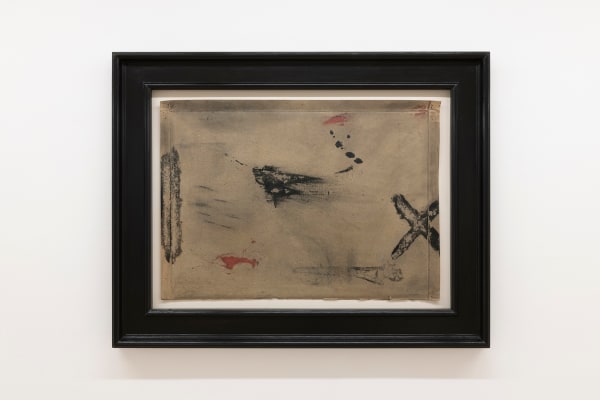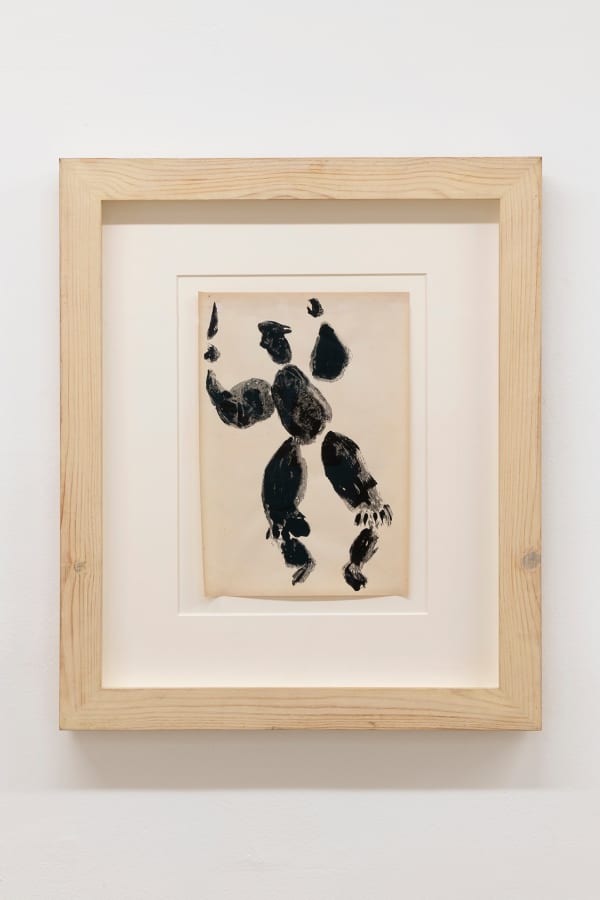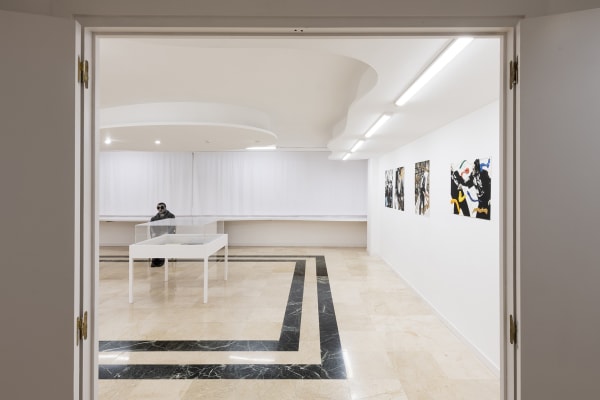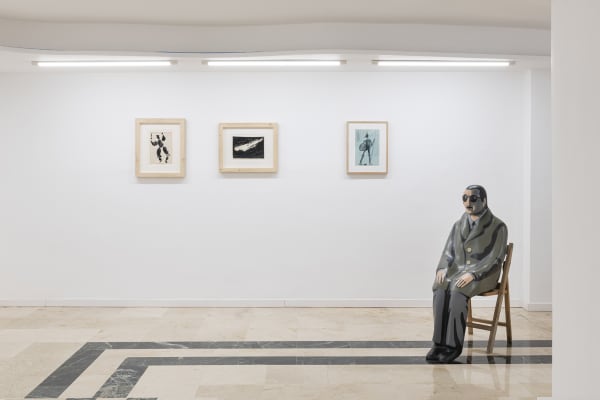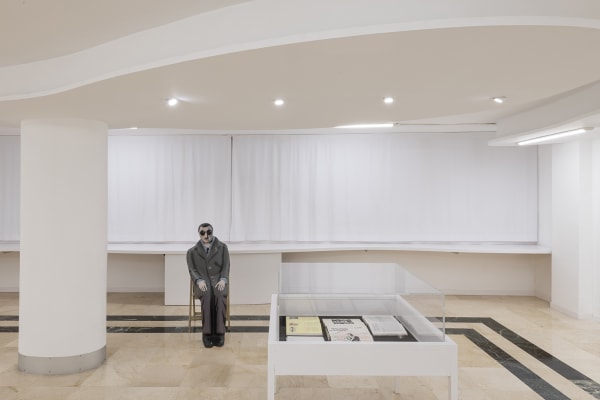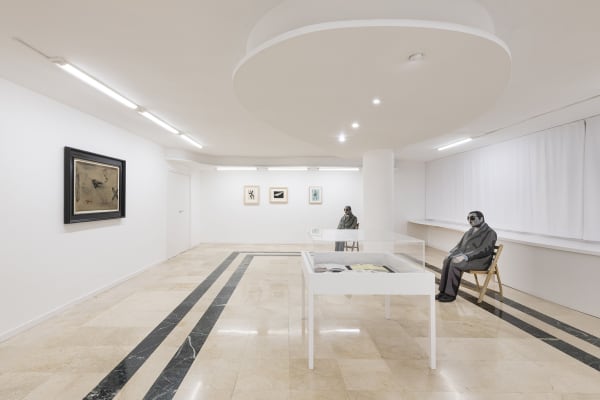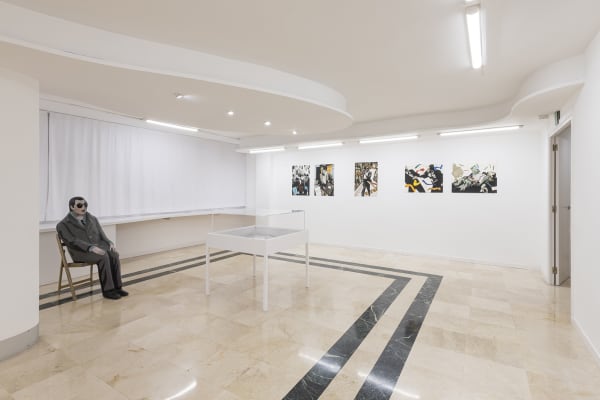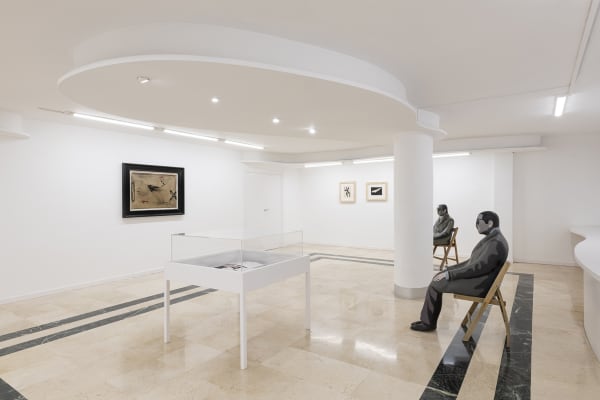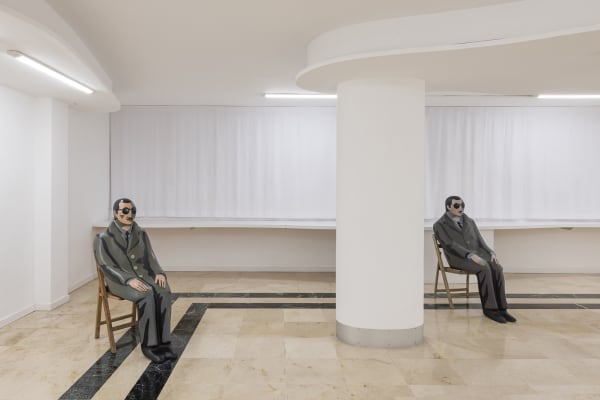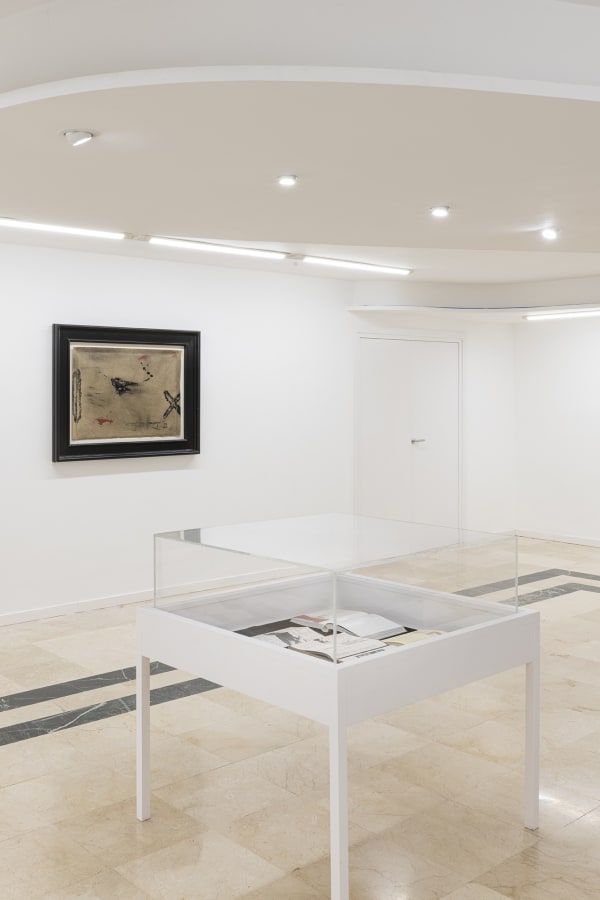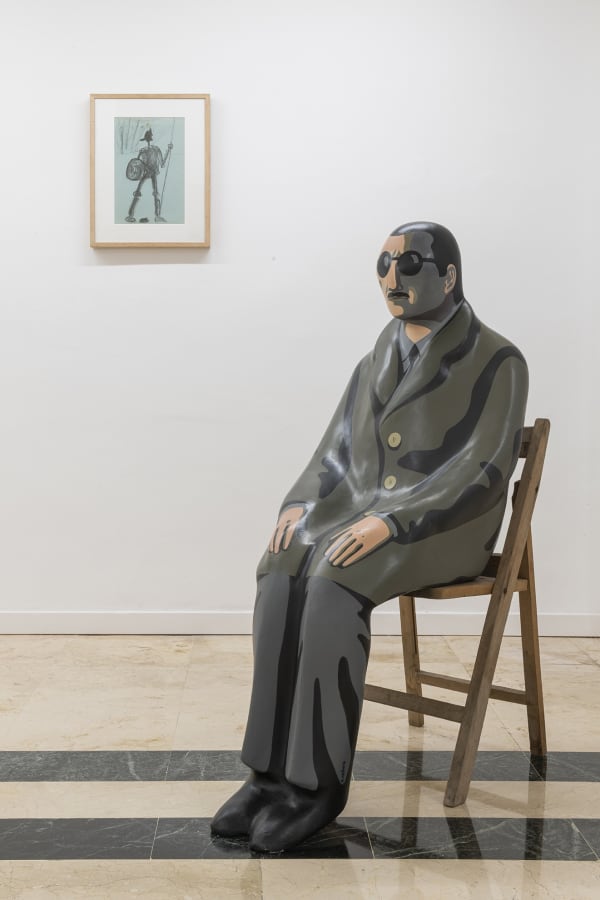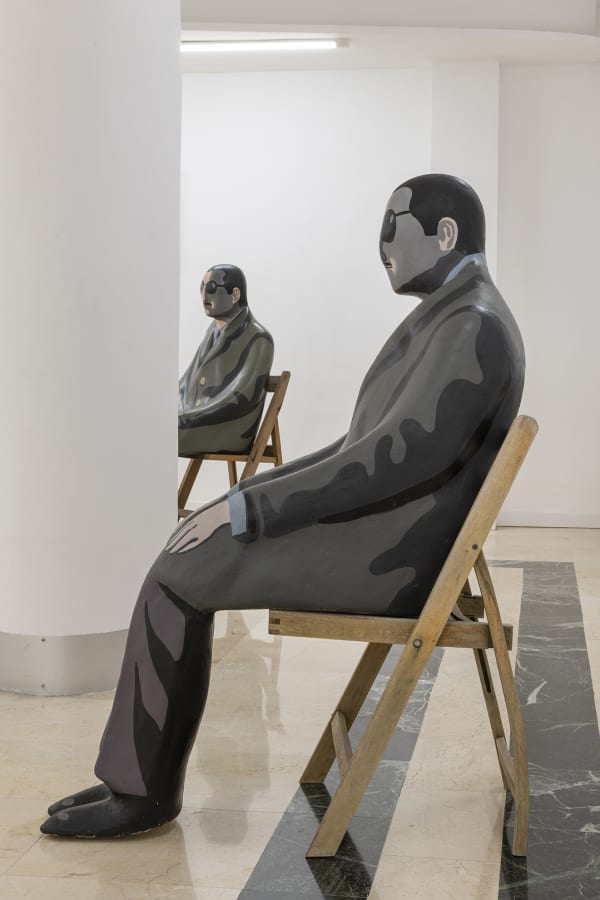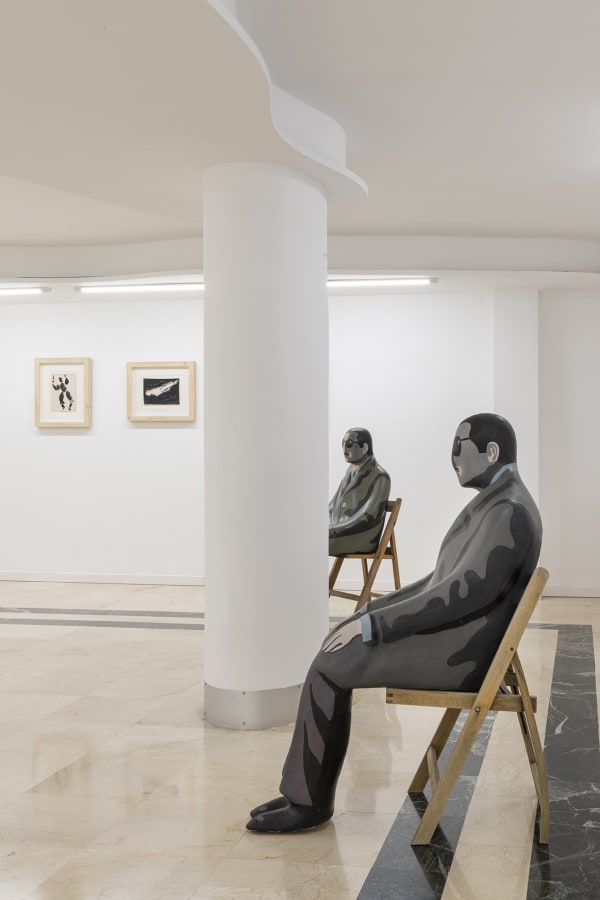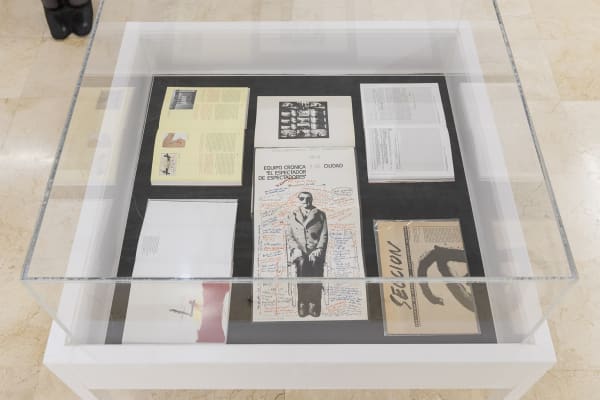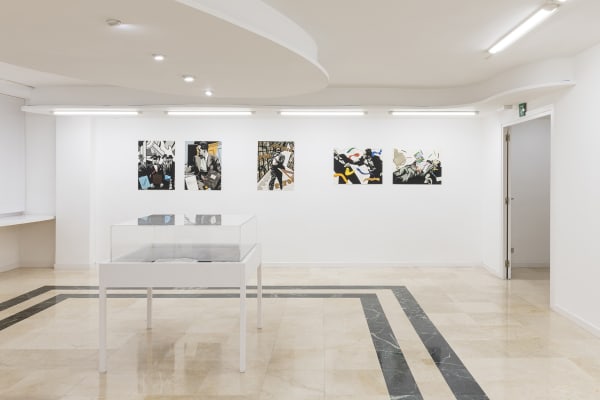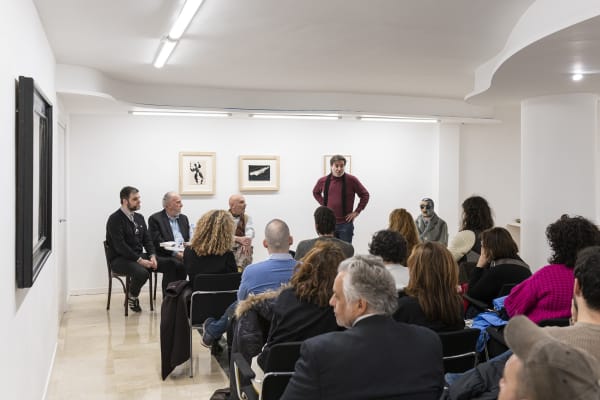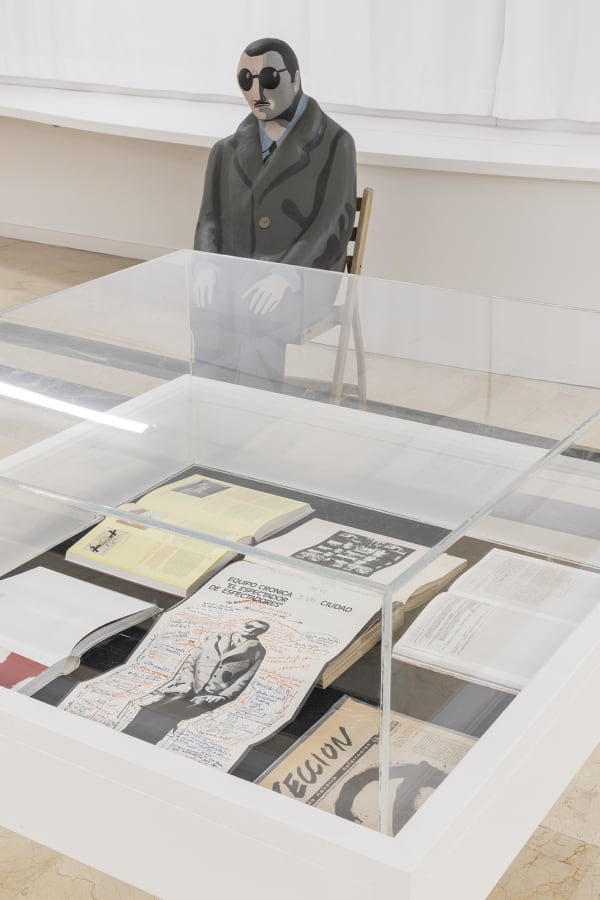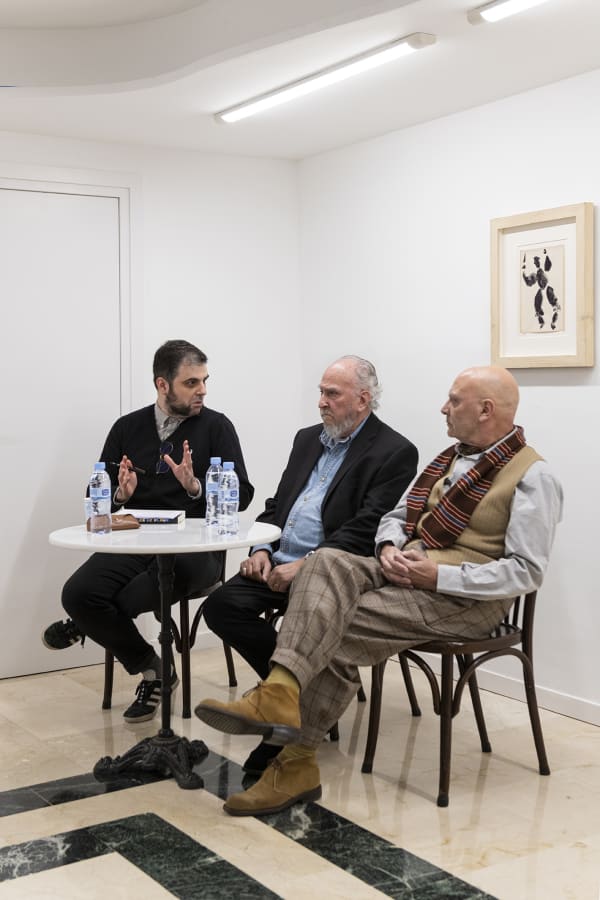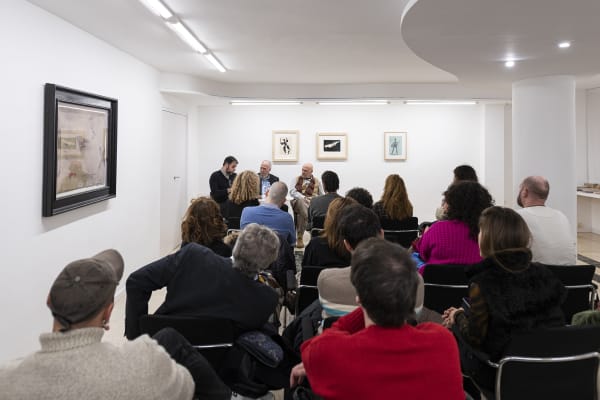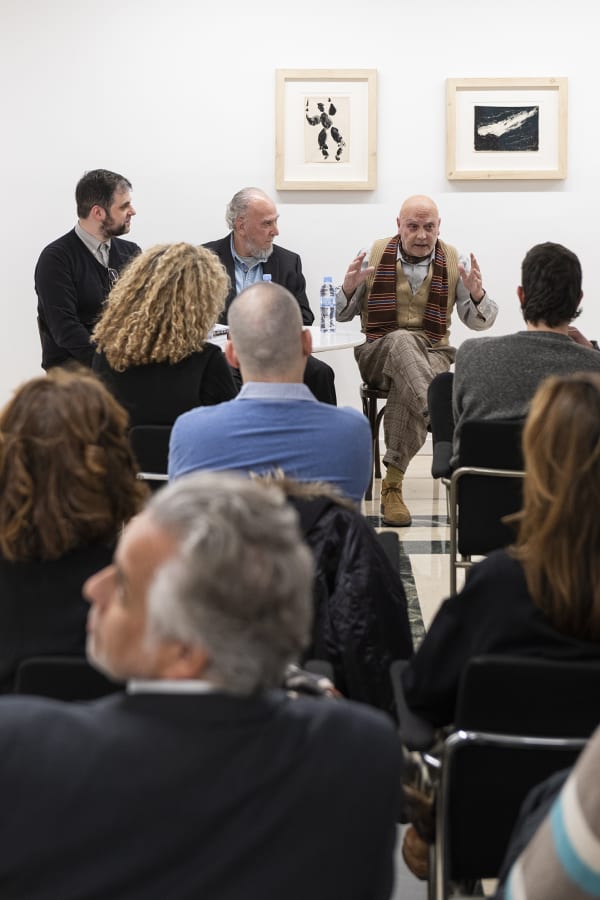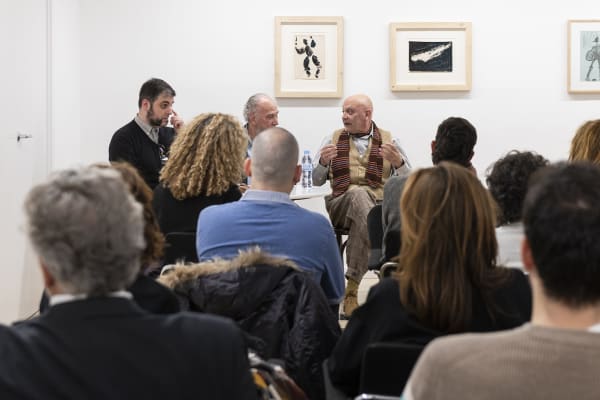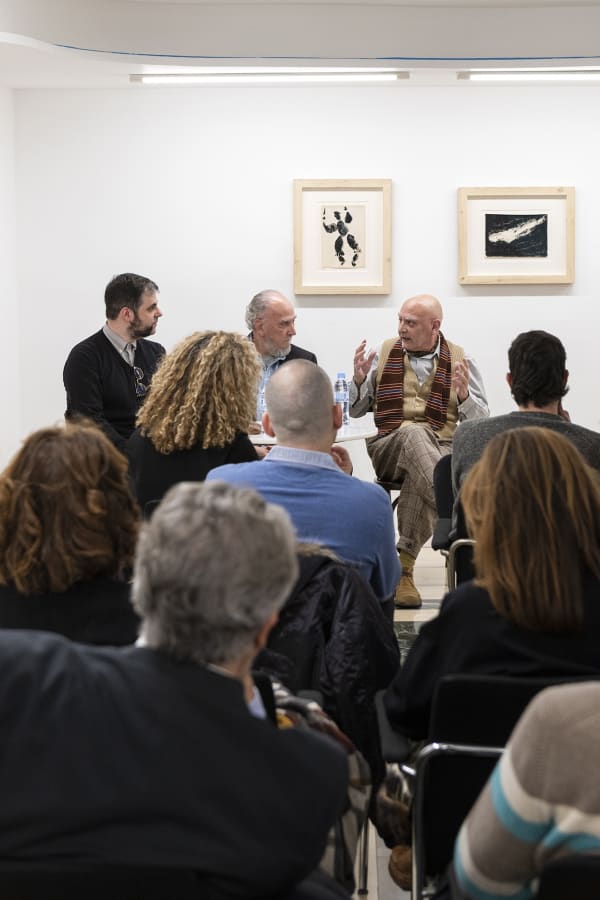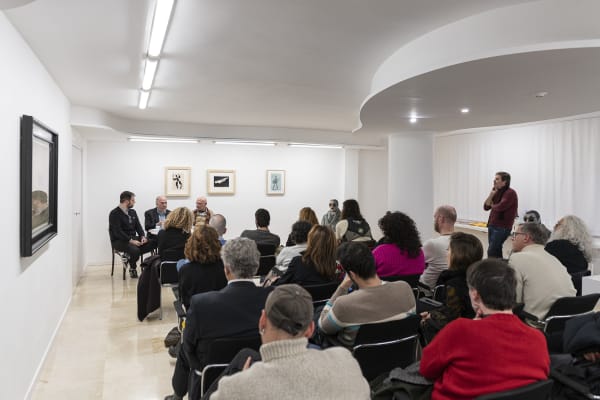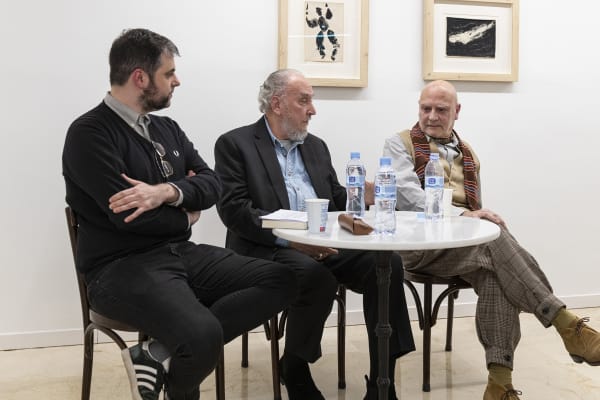Conversation between artists Francesc Torres and Carlos Pazos, moderated by artist Alán Carrasco, about the Encuentros de Pamplona, and the background radiation that they have bequeathed to younger artists.
At ADN Galeria, January 19th, 18:30 - 20:00
Ephemeris use to be a fertile ground for both mythification and mystification: the fiftieth anniversary of the Encuentros de Pamplona has not been the exception.
For 9 days between the end of June and the beginning of July 1972, centers, squares and streets of Pamplona were full by an international festival to celebrate the avant-garde and action art. In this small city, known for its participatory popular festivals, more than 300 national and international artists gathered: a milestone that is even more surprising considering that this happened during the final period of the national-Catholic dictatorship in Spain. These new practices, which called for collective and performative creation, moved away from the social realism and informalism that had dominated the Spanish context up to this moment. Thus, a collision between aesthetic and ideological modernities manifested itself, all within the anti-Franco regime: the artistic neo-avant-gardes that developed here with delay respect to the European trends, and the experimental practices that seemed to come into sync with international discourse.
For ADN Galeria and for our audiences, it may seem strange that a program so committed to current affairs presents, in its project space, a series of works and documents by some of the protagonists of those days: the Serie Negra and two Espectador de Espectadores by Equipo Crónica –who did participate in the Encuentros–, confronted with a work by Tàpies and three drawings by Oteiza – who lead the opposition to the festival–, but we believe that highlighting some of the frictions that were generated around the Encuentros it can be interesting and enriching both for us and for the gallery's young audiences.
Those frictions, on the other hand, did not entail a change, and they can be located in the historical evolution around artistic practices that began with the dispute between the supremacy of the visual over the auditory in the Renaissance, and continued with the Querelle des Anciens et des Modernes, going through the fratricide of the historical avant-gardes, the steely attacks against the institutionalized strategies of the post-war neo-avant-garde and, already in our context, the great dispute between figuration and abstraction from the 50s, or the dispute between Tàpies himself and Grup de Treball in 1973.
And nowadays? Paraphrasing Manolo Borja-Villel, we recognize, not without a certain nostalgia for an unlived past, that we find ourselves in a society devoid of antagonism and judgement, marked by an artistic activity in which "to not questioning in order to not been questioned" triumphs. Therefore we dare, at the risk of being opportunistic, to show some of the works from ADN collection to underpin our commitment to the sociography of art, today’s and the one of fifty years ago. We also dare to organize a conversation between artists Francesc Torres and Carlos Pazos, moderated by artist Alán Carrasco, about the artistic work of those early 70s, and about the background radiation that they have bequeathed to younger artists.
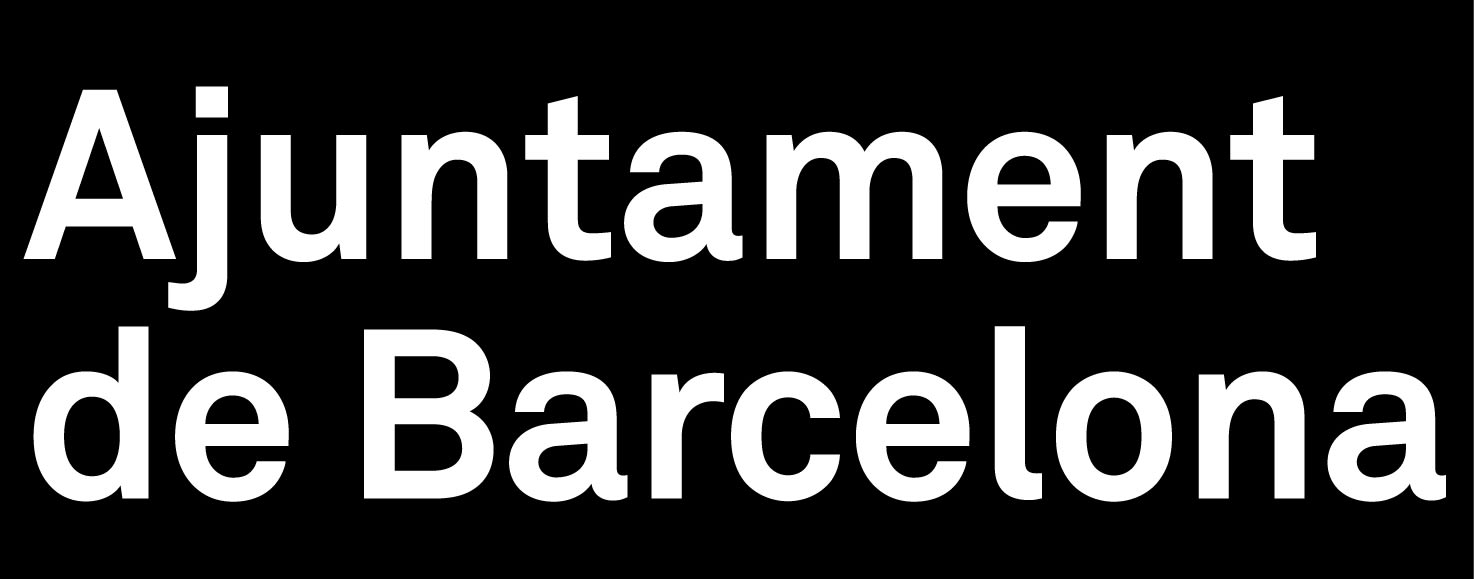

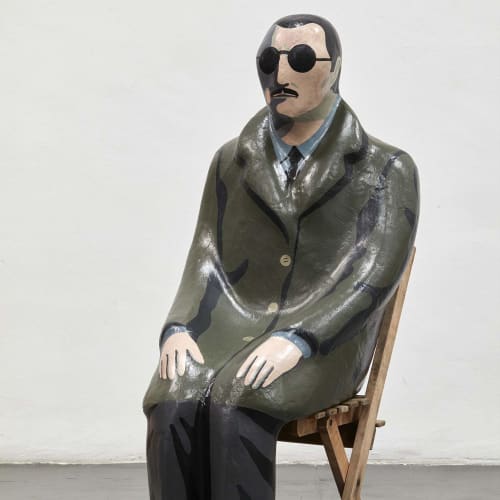

![Equipo Crónica, Espectador de espectadores [1], 1972](https://artlogic-res.cloudinary.com/w_600,c_limit,f_auto,fl_lossy,q_auto/artlogicstorage/adngaleria/images/view/b855fb7503e8e36a4ec65d0ceda21c11j/adngaleria-equipo-cr-nica-espectador-de-espectadores-1-1972.jpg)
